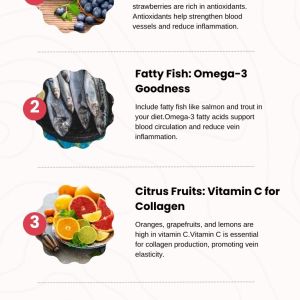4 Effective Ways to Manage Varicose Vein SymptomsPosted by Dr jathin rai on December 15th, 2023  Introduction: Are you dealing with varicose veins? You're not alone. Varicose veins are a common problem affecting a wide range of individuals, especially as they age. These twisted, enlarged veins, most often appearing in the legs and feet, can be more than just a cosmetic concern. They often cause discomfort, aching, and a heavy feeling in the legs, which can significantly impact your daily life. But here's the good news: managing the symptoms of varicose veins is possible, and many effective strategies can be incorporated into your daily routine. 1. Exercise Regularly: A Simple Step with Big Benefits Exercise is a powerful tool in managing varicose vein symptoms. Activities like walking, cycling, and swimming enhance blood circulation in your legs, helping to alleviate the pressure that causes varicose veins. Regular exercise for varicose veins also strengthens your leg muscles, providing better support to your veins. 2. Elevate Your Legs: An Easy Way to Reduce Pressure Elevating your legs is a simple yet effective method to manage varicose vein discomfort. By lifting your legs above your heart level, you encourage blood flow back towards your heart, reducing the pressure on your leg veins. This can be especially soothing after a long day of standing or sitting. Try to do this for 15-20 minutes, three times a day. 3. Wear Compression Stockings: Supportive and Beneficial Compression stockings are often recommended by varicose veins doctors for varicose vein management. These specially designed socks apply gentle pressure to your legs, aiding in blood flow and reducing swelling and pain. They are particularly useful for individuals who spend a lot of time on their feet or seated. 4. Mindful Eating: The Role of Diet in Vein Health Your diet plays a crucial role in managing varicose vein symptoms. Foods rich in potassium, such as bananas, oranges, and leafy greens, can help reduce water retention—a factor that exacerbates varicose veins. Reducing salt intake is also important to prevent swelling. Additionally, fiber-rich foods like whole grains and vegetables can prevent constipation, which can put extra pressure on your veins. Consult a Varicose Vein Specialist While these home remedies are beneficial, seeking advice from a varicose vein specialist is crucial for personalized treatment. Remember, managing varicose veins is not just about symptom relief; it's about improving your overall quality of life. To read more:https://medium.com/@marketing_74301/4-effective-ways-to-manage-varicose-vein-symptoms-e2a09aeaf83d Like it? Share it!More by this author |


